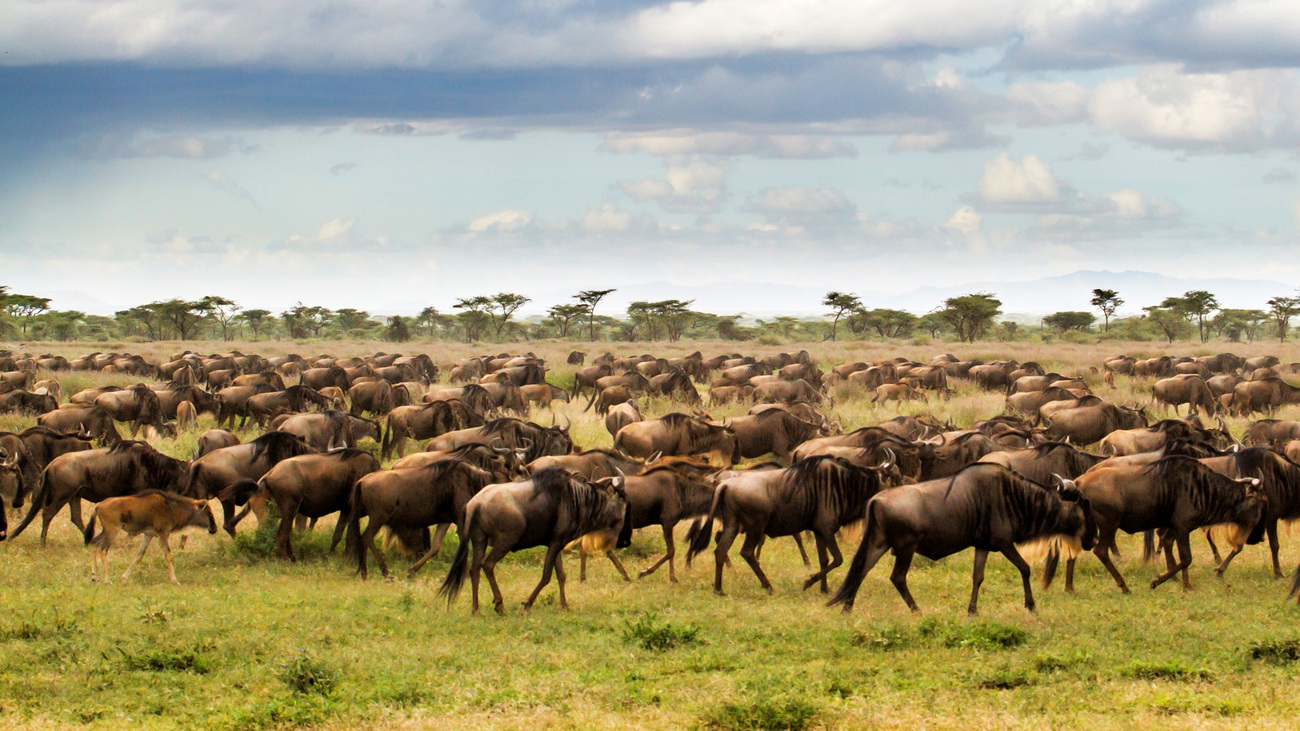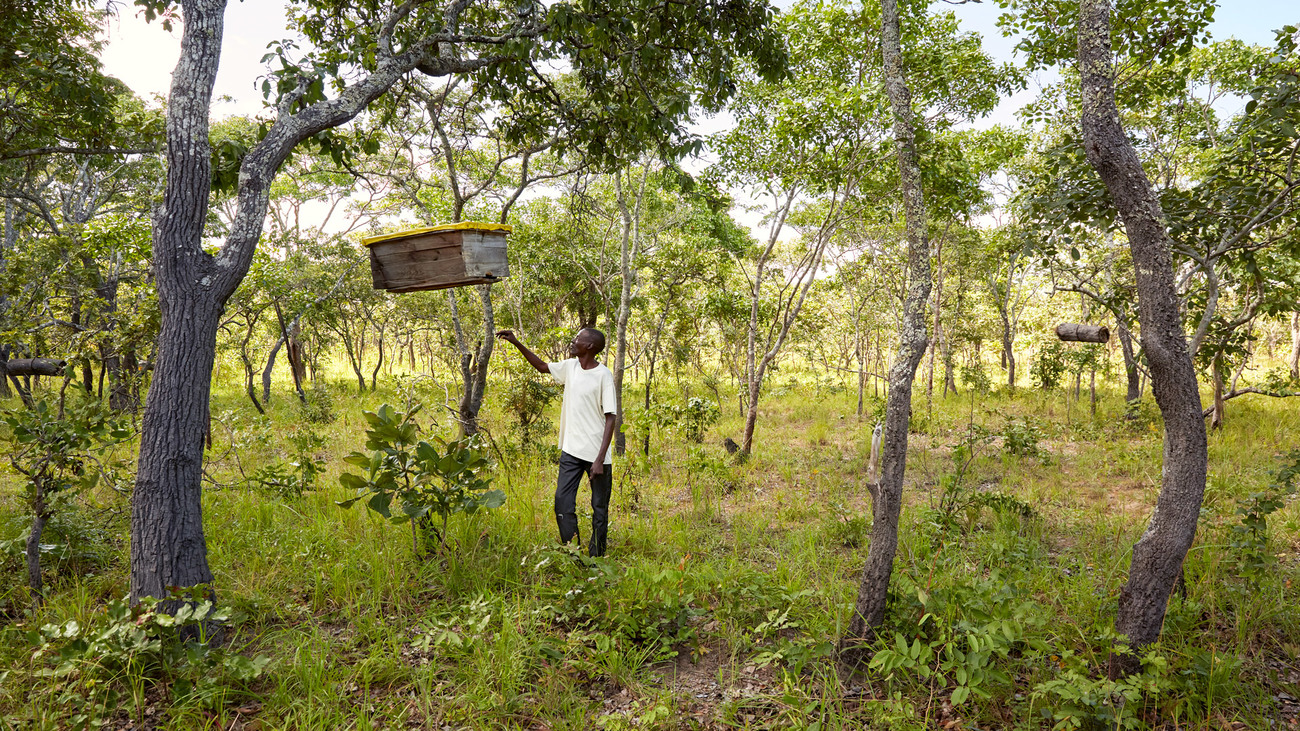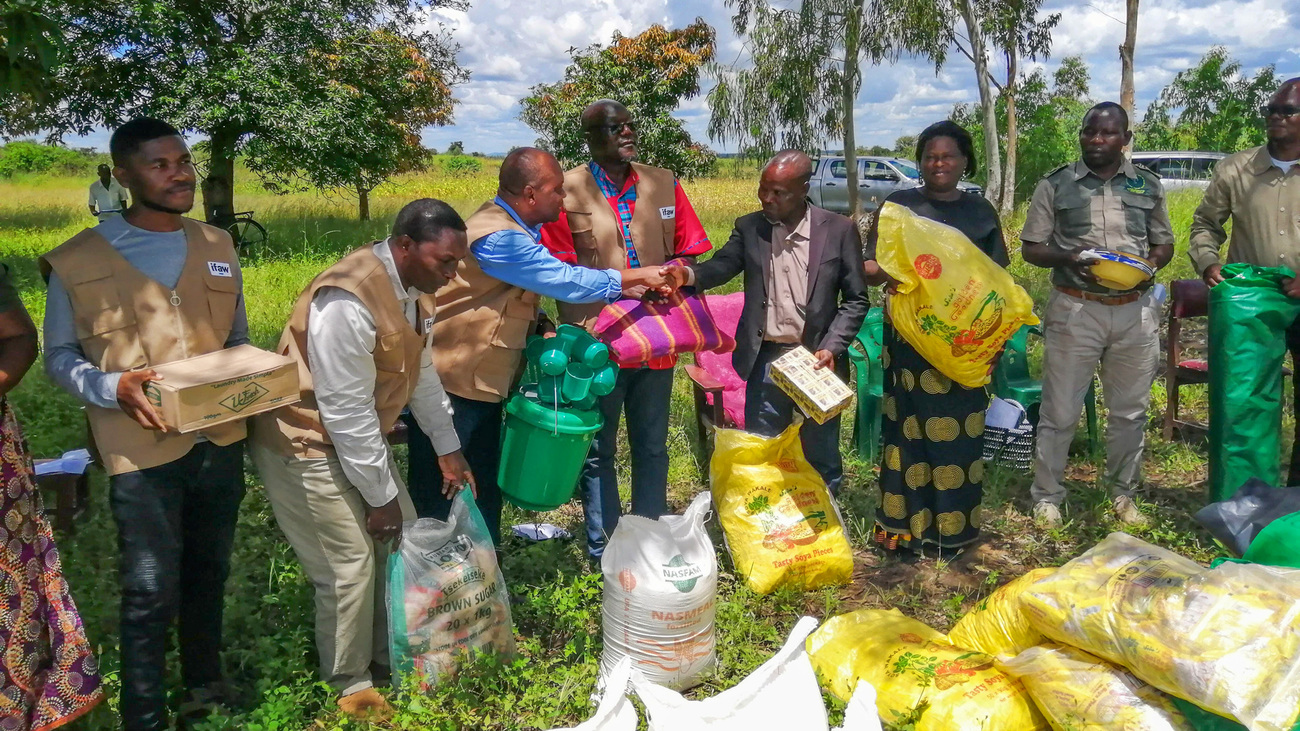Phillip Kuvawoga
Nature rises: Southern Africa turns to natural solutions amid drought crisis
Nature rises: Southern Africa turns to natural solutions amid drought crisis
Southern Africa is grappling with an acute food shortage caused by one of the most extreme droughts to have hit the region in recent years.
According to the United Nations Office for the Coordination of Humanitarian Affairs, triggered by El Niño, the drought scorched the 2023–2024 farming season, plunging more than 61 million people into an emergency food aid situation as of May 2024.

Just as they occur globally, the region is trapped in a spiral of climate crises hitting back-to-back. For instance, in March 2023, Malawi, Mozambique, and Madagascar were battered by Cyclone Freddy, which killed thousands of people, displaced hundreds of thousands more, and swept away hundreds of thousands of hectares of crops.
When the current drought hit, these communities had not recovered from the effects of Cyclone Freddy and a series of other natural shocks over the past decade.
Worryingly, science shows that these climate disasters will continue to occur with increased frequency and severity.
As these catastrophes keep communities in their grip, biodiversity protection bears the brunt.
When communities that are predominantly reliant on agriculture for livelihood have their crops burnt down by drought or swept away by floods, they will turn to other means to survive, including poaching and encroachment into protected areas to extract resources for food or income.
Conversely, as Phillip Kuvawoga, director of the landscape conservation programme at IFAW, explains, for southern Africa, these natural disasters exacerbate human-wildlife conflict as animals roam out of protected areas in search of food and water, negatively impacting an already food-insecure population.
Incorporating nature into climate solutions
The effects of climate disasters on wildlife conservation are challenging. Still, they increasingly highlight the need to adopt impactful approaches that make human livelihoods and wildlife conservation resilient to climate change. This nexus of climate crisis, human welfare, and biodiversity conservation makes a strong case for nature-based solutions.
IFAW pushed for this approach at COP28 in Dubai in December 2023, where we also unveiled a report amplifying what nature-based solutions can achieve for climate, biodiversity, and communities.
IFAW argues that nature-based solutions put nature at the heart of climate action. They demonstrate that nature is not just a victim of climate change but also a powerful ally in humanity’s fight to heal the Earth from the climate crisis.
Harnessing nature-based solutions means addressing human-induced climate change while ending biodiversity loss, restoring ecosystems, and protecting wild animal populations.

Scientists back this approach. In one study published in Nature in March 2023, researchers observed that some quarters view climate solutions such as carbon capture and storage as having the additional benefit of protecting habitats and landscapes to conserve animal species diversity. However, the 15 scientists argue that this reasoning underestimates wild animals’ role in controlling the carbon cycle.
Protecting and restoring wild animals and their ecosystem functions can enhance natural carbon capture and storage.
In illustration, they observe that when a rinderpest disease outbreak wiped out the wildebeest population in the Serengeti plains in Kenya from the 1930s to the 1960s, the grass that the animals would usually graze on built up as fuel, resulting in more frequent and intense wildfires plaguing the Serengeti ecosystem and releasing carbon into the atmosphere.
Since the restoration of the wildebeest population, the Serengeti has absorbed an estimated 4.4 million more tonnes of carbon annually.
The researchers, therefore, call for ‘new thinking that includes the restoration and conservation of wild animals and their ecosystem roles as a key component of natural climate solutions.’
A call for climate action
IFAW advocates for better integration of wildlife conservation into climate action plans.
Action to restore degraded landscapes must not be prioritised at the expense of action to protect and conserve existing ecosystems and biodiversity. Actions should also account for the importance of wildlife and wildlife conservation for carbon capture and climate adaptation.
Adequate financing is required to implement these measures successfully. IFAW, therefore, challenges international finance providers to recognise the scientific evidence demonstrating the extent to which wildlife and wildlife conservation activities can contribute to climate mitigation and adaptation.

Further, the organisation believes that a lot can be achieved by empowering communities to practice nature-based solutions around their livelihoods. As such, working with partners such as COMACO (Community Markets for Conservation) and smallholder farmers, IFAW is promoting agricultural practices such as agroforestry, land use planning, and forest management through natural regeneration, in addition to beekeeping and honey processing in communities across the Malawi-Zambia Transfrontier Conservation Area.
That’s because nature-based solutions make both wildlife and humans more resilient to climate impacts.
As Kuvawoga says, an ‘integrated and holistic approach to support climate-resilient landscapes and communities’ is required.
Related content
Every problem has a solution, every solution needs support.
The problems we face are urgent, complicated and resistant to change. Real solutions demand creativity, hard work and involvement from people like you.